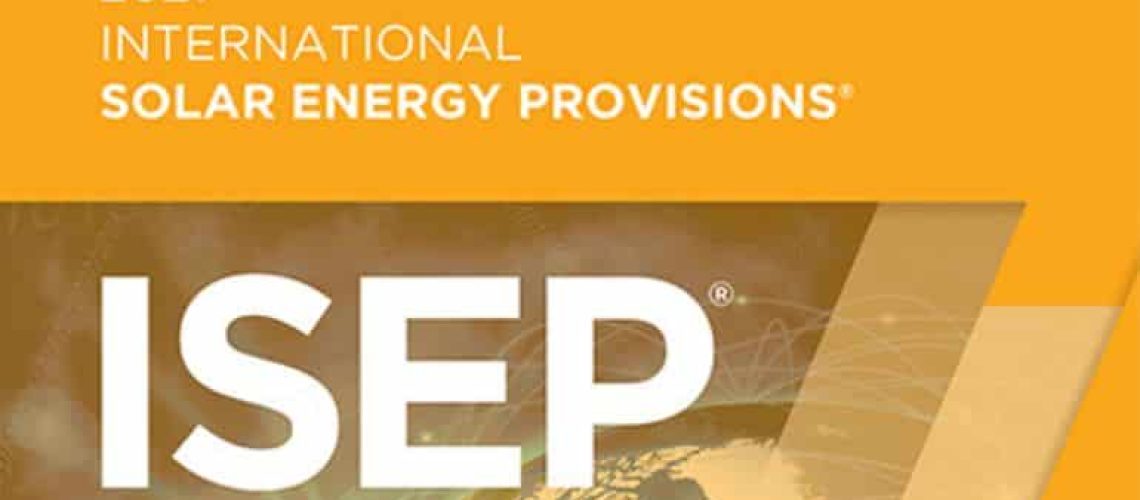The International Code Council collaborated with the National Fire Protection Association (NFPA) to publish the 2021 International Solar Energy Provisions (ISEP). The document compiles all solar energy-related provisions from the 2021 International Codes (I-Codes) and the NFPA 70 National Electrical Code (NEC), 2020, making it streamlined and easy to apply in the field.
“The 2021 ISEP consolidates current code requirements for solar energy systems into a single, comprehensive, cost-effective publication,” said Mark Johnson, executive VP and director of business development at the Code Council. “All the building, electrical, fire, plumbing, energy and mechanical requirements pertaining to solar energy are at your fingertips.”
The ISEP was created to provide an all-inclusive tool for the design, installation and administration of both solar thermal (or solar heating and cooling) and photovoltaic (PV) systems. The document contains information on pertinent standards and provides additional resources, such as solar permitting forms, checklists, solar site access points and links to the U.S. Dept. of Energy solar site. With the growing demand for energy efficiency and sustainability, the ISEP will greatly benefit the industry by providing a single, organized source of solar thermal and photovoltaic safety code provisions in one publication.
“The 2020 edition of NFPA 70, National Electrical Code (NEC), plays a key role in the design and installation of solar photovoltaic systems. Through this proud partnership with the Code Council, NFPA can continue delivering key information and knowledge needed by designers, installers and administrators as they work to deliver safe solar projects,” said Erik Hohengasser, electrical technical lead at NFPA.
“One of the key aspects of the 2021 ISEP is that it brings together the most important code resources for both photovoltaic and thermal solar systems,” said Shawn Martin, VP of technical services of ICC Evaluation Service. “Users get the benefit of the latest code provisions and the latest reference standards — all in one book.”
News item from the International Code Council
<!–
–>






